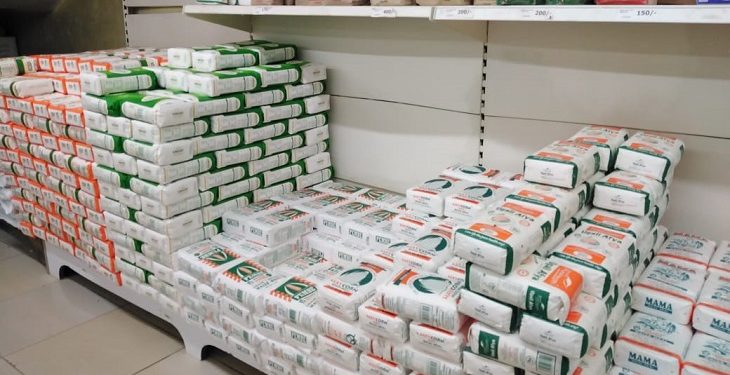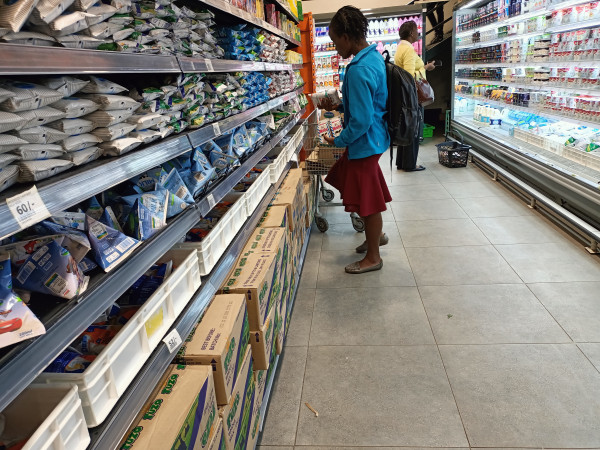How consumers help firms to raise, sustain high prices

Kenyans will have to wait much longer for cheaper commodity prices in the wake of a global increase in operating costs for most of the manufacturers. However, experts say some companies increase costs just because they can.
As inflation reached its highest level in decades in many countries, markups on household items which had started climbing even before the Covid-19 pandemic continue to increase.
Locally, apart from products like wheat and maize flour that have recorded historic price increases, the cost of commodities like cooking oil, tissue paper and aerosols have hit unprecedented levels.
The rising prices of basic commodities have left most citizens wondering what’s going on. A 67 per cent increase in prices of maize flour in just five months drove the 12-month overall inflation rate to 7.91 per cent in June 2022.
Global brands like Unilever, Coca-Cola and McDonald’s have laid bare the impact of global inflation, responding to higher costs with price increases that will heap more pressure on consumers.
Suppliers of commodities
Grocery bills may be ridiculously high these days, but supply chain problems, energy costs, and inflation aren’t the only factors to blame. New research suggests that companies are raising prices simply because they can. Experts now say that some suppliers of commodities have been “increasing markups” without any regard to market dynamics.
The markups — which is the difference between prices charged at checkout and costs companies incur in order to make a product — had already increased by about 25 per cent between 2006 and 2019, according to research by Alexander J. MacKay, an assistant professor at Harvard Business School.
Researchers have come to a startling conclusion: Consumers are 30 per cent less price sensitive — meaning less likely to abandon favourite brands and seek cheaper equivalent products.
“Despite the rapid inflation in prices since the onset of the pandemic, consumers are still buying, likely reflecting a lower price sensitivity. This could continue to allow companies to raise prices faster,” MacKay says. Locally, Kenya National Bureau of Statistics (KNBS) data shows that the prices of basic commodities have increased steadily, “with food accounting for 36 per cent of expenses among low-income earners”.
This as manufacturers continue to blame an unstable shilling and the increasing cost of fuel which has affected the foreign exchange rate, impacting the ability to bargain in the foreign market.
According to Consumers Federation of Kenya (COFEK), the recent price hike in most basic items is unjustified and has written to the Competition Authority of Kenya (CAK) for action.
For example, tissue paper manufacturers who fetched Sh2.4 billion in sales last year, according to data from the economic survey, have maintained a sharp rise in tissue prices in the last three months in some instances up to threefold.
A spot check by Business Hub shows that brands like Rosy Toilet Paper White 8 Pack now retail at Sh1,700, Bella 10 pack goes for Sh1,650 and Toilex goes for Sh1,500 for a packet of 10, from an average of Sh400.
Globally, inflation in Britain rose to 10.1 per cent in July, In the United States inflation has risen to 8.5 per cent.
Taking into account that 30 per cent of Kenya’s Economy relies on some of these foreign economies, the impact has been passed to Kenyans. Some of the drivers of Kenya’s inflation are local while others are external and beyond its control.
Based on analysis of the Kenyan economy, analysts say that inflation can be managed but there are no quick fixes.
In Kenya, a confluence of many factors has inflated prices, particularly after the Ukraine war and the pandemic.
John Kirimi, an independent analyst, notes that in the short term Kenya can only offer subsidies to cushion citizens from high prices.
Foreign markets
“In the short-term we can only look at how to increase and extend subsidy programmes, but in the medium and long-term a permanent solution should be found. By reducing our dependence on foreign markets we can manage the inflation using local measures,” added Kirimi, formerly of Sterling Investments.
Already Kenya is reporting low levels of forex reserves due to a drop in export earnings, exposing local currencies to volatilities in the global market.
The International Monetary Fund says that for Kenya and other African states tighter monetary policy will help reduce inflation despite inevitably having real economic costs.













